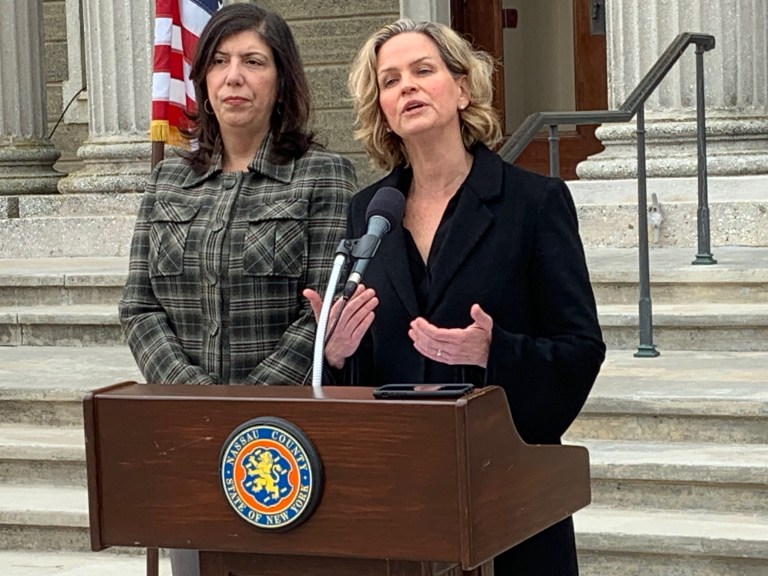
Nassau County Executive Laura Curran, along with Nassau County District Attorney Madeline Singas, unveiled the latest measure in her fight to end corruption last Friday: an online platform for county employees to file electronic financial disclosures forms.
The database will be made available to the Nassau County Board of Ethics and the county’s inspector general, but will not be made viewable to the public or any other county official.
Members of the county’s Board of Ethics are appointed by the county executive and the inspector general is chosen by the county Legislature.
Curran emphasized that in the past these forms were submitted on paper which hindered their anti-corruption purpose.
She said the prior method made it “too easy for vital information about ethical conflicts to be slid into a box, then hidden away in a basement.”
Joye Brown, a columnist with Newsday, asked: “What’s the difference between the Board of Ethics and the box in the basement if the public doesn’t have access to it?”
The county executive responded that the online financial disclosure platform was a step that was very important to the Board of Ethics. “They adopted this and they will have access to it,” she said.
The county’s financial disclosure process was highlighted by Singas in a 2015 report that said the paper-based system did not “allow for the efficient, electronic cross-referencing between public officials’ disclosed relationships and potential county contractors.”
At the news conference, Singas said her office found that the paper forms were inconsistently completed, often in illegible handwriting, filed with the board and never reviewed.
She said at the state level financial disclosures have been electronically collected since 1998.
“Nassau has caught up 21 years later,” Singas said.
Some 700 county employees who have been designated as policymakers, about 10 percent of all of the county’s employees, will be required to file an electronic disclosure statement through the platform by May 15, according to John Chiara, the deputy county executive for compliance.
For an employee to be considered a policymaker, he or she must be in a position to make or influence policy for the county.
The digital form includes questions on investments, trusts, other income, gifts and third-party reimbursements that a county policymaker has received over the past year.






